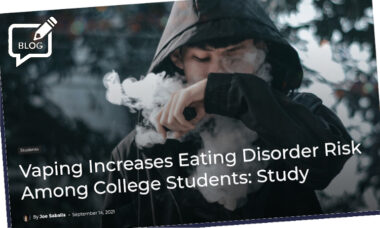 Politicians and all those who lay down the law have become very fond of talking about “following the science”. Which sounds like a good idea, right? Well, yes, as long as it’s good science.
Politicians and all those who lay down the law have become very fond of talking about “following the science”. Which sounds like a good idea, right? Well, yes, as long as it’s good science.
Even then it’s all too often the reports of the science, rather than the science itself, that get taken up. And that, more often than not, is something entirely different.
Take this headline from The College Post: “Vaping Increases Eating Disorder Risk Among College Students: Study”.
There’s another gift to the shock jocks, more power to the elbow of those who see vaping as a dangerous threat to young people and would like to see it banned. Except that what that headline says isn’t what the study itself says at all.
Indeed, the very first sentence below the heading casts its shocking assertion into doubt.
It says: “A new study conducted by the University of Toronto has found that vaping and using e-cigarettes are correlated with a heightened risk of developing an eating disorder among college students.”
And as anyone just a little more scientifically literature than your average journalist knows, correlation is not causation.
Back-to-front
In this instance the headline – as distinct from the somewhat more responsibly worded story below it – is even further off-beam than that. It’s got the facts back-to-front.
According to the study’s author, Kyle Ganson, students who have been diagnosed with eating disorders “tend to have a proclivity for vaping or e-cigarette use”. The attraction, he suggests, may be the hope that vaping, like smoking, may suppress the appetite.
So it’s not that vaping leads to anorexia and bulimia, but rather that victims of those debilitating diseases tend to be attracted to vaping. Which may not be good for them – though it’s probably less dangerous than if they were to take up smoking – but it’s a totally different prospect from what’s stated in the headline.
Sadly, the shock headline is all too often all that the casual reader – or the casual lawmaker – takes in.
– Aidan Semmens ECigIntelligence staff






